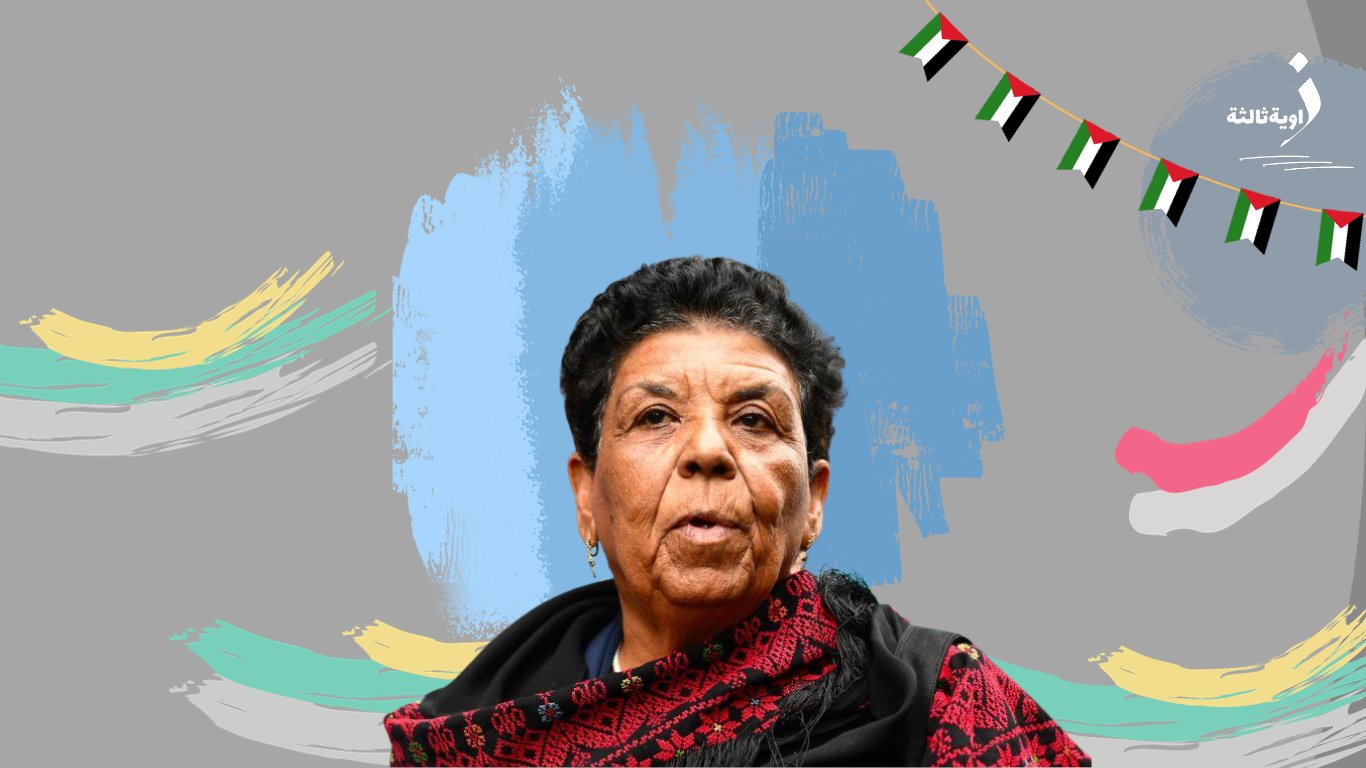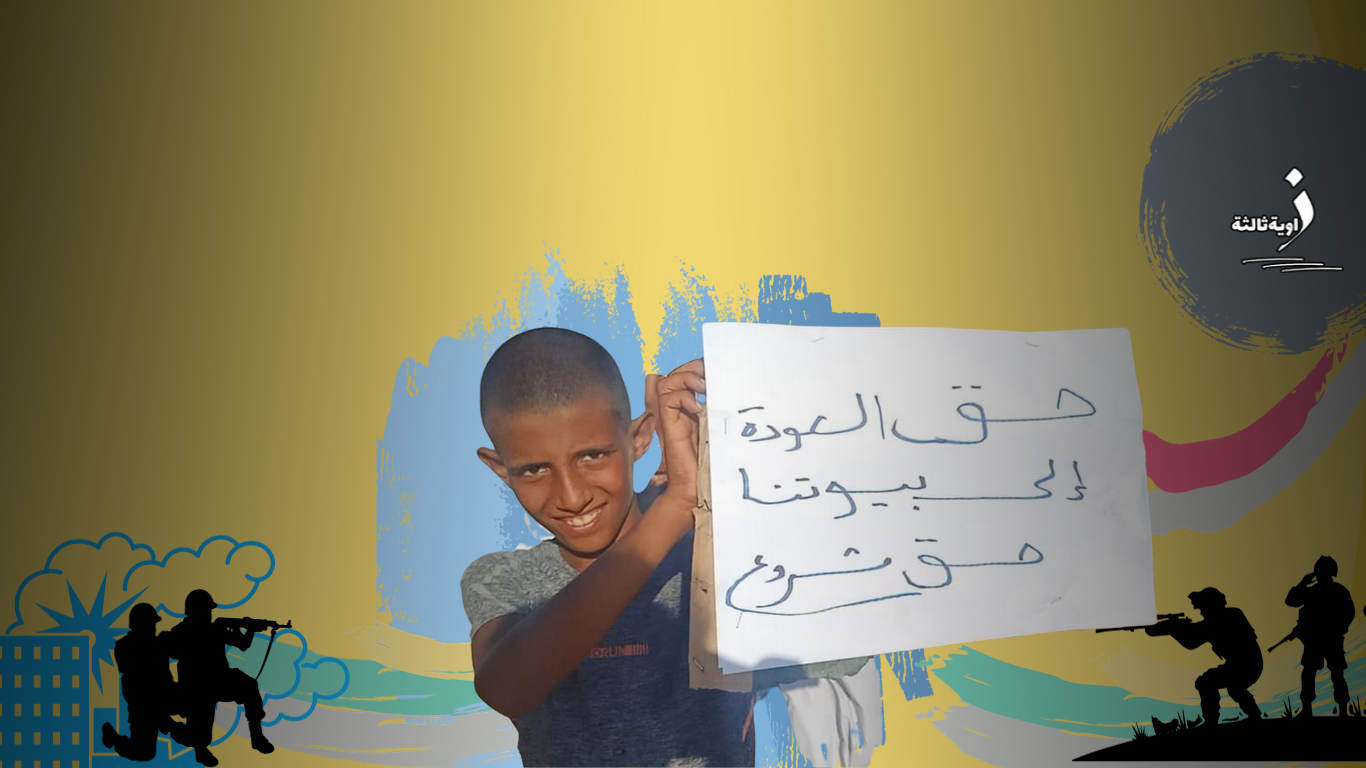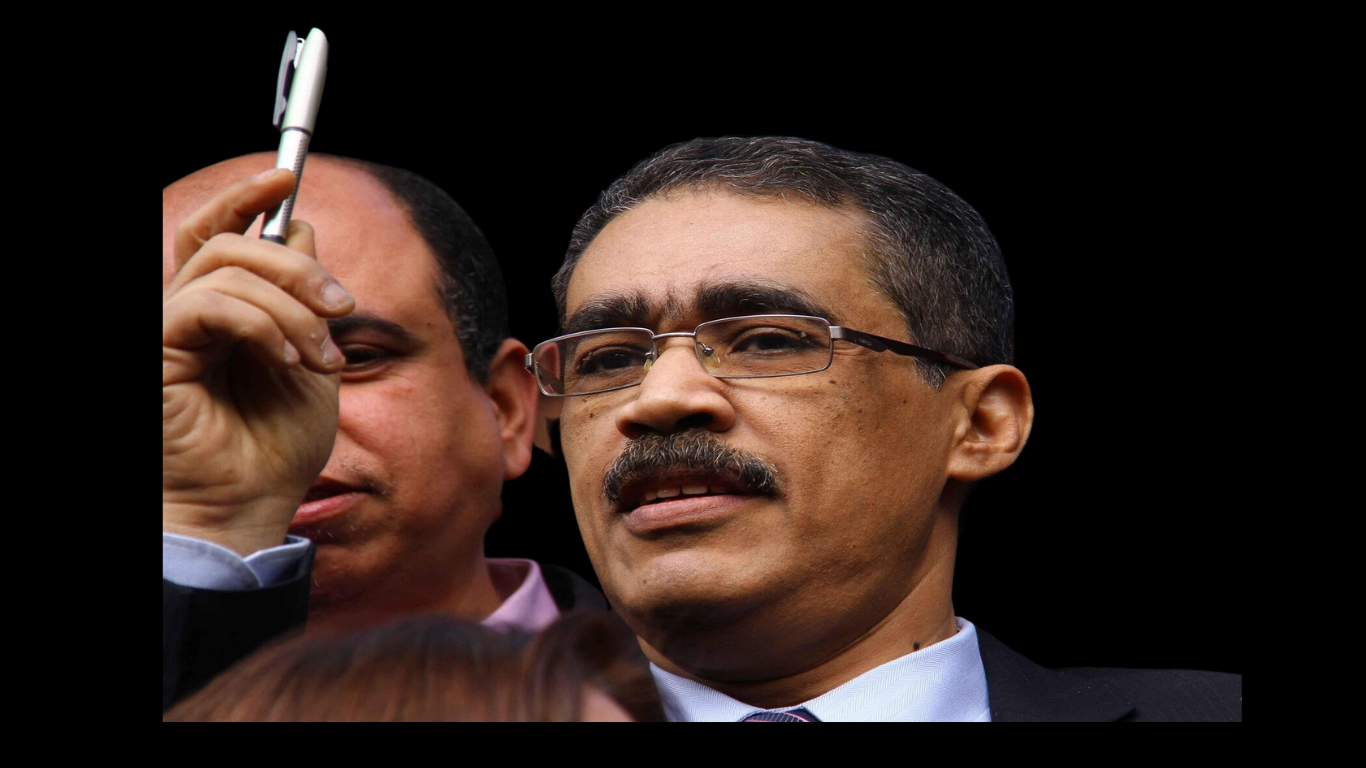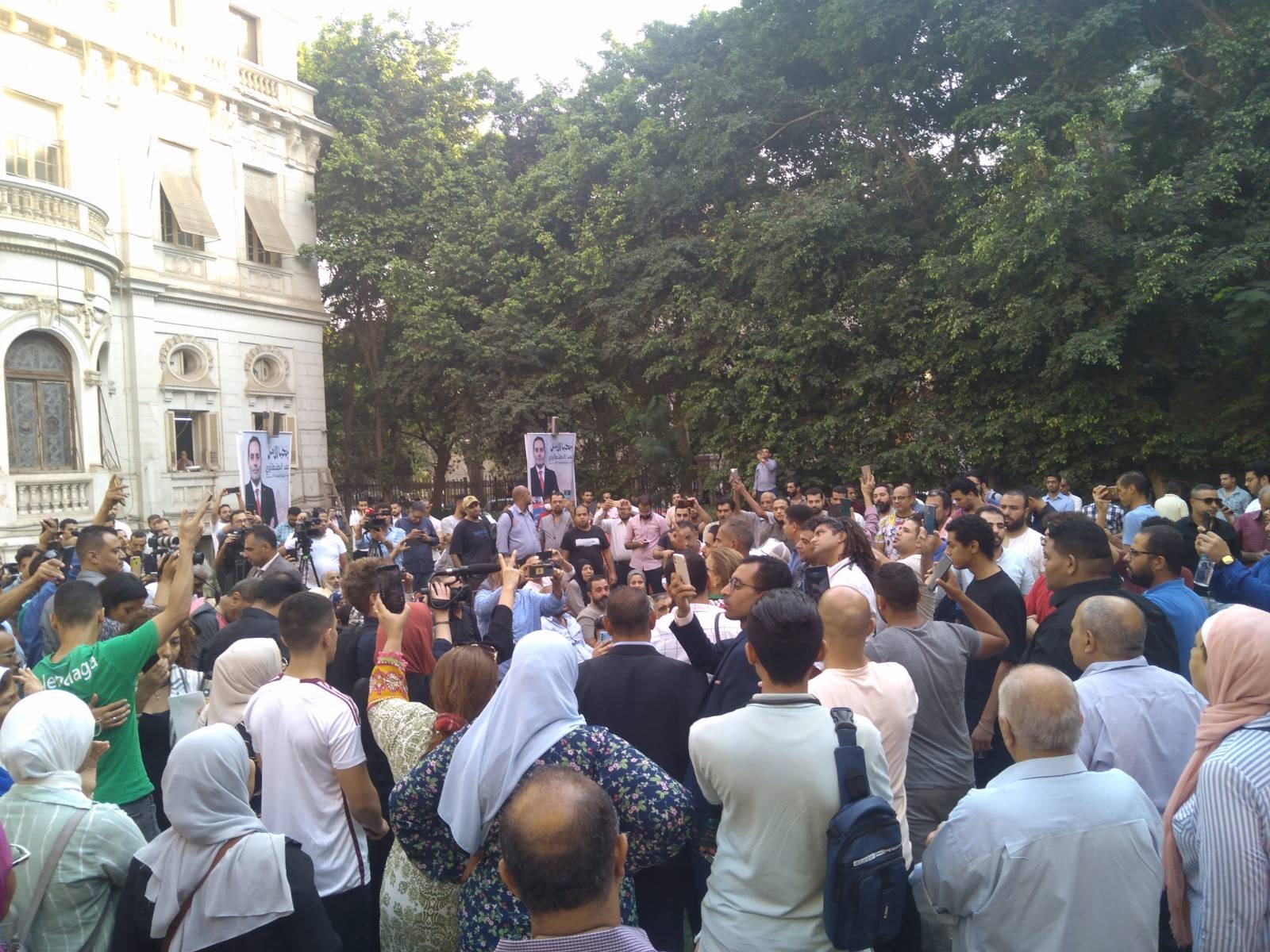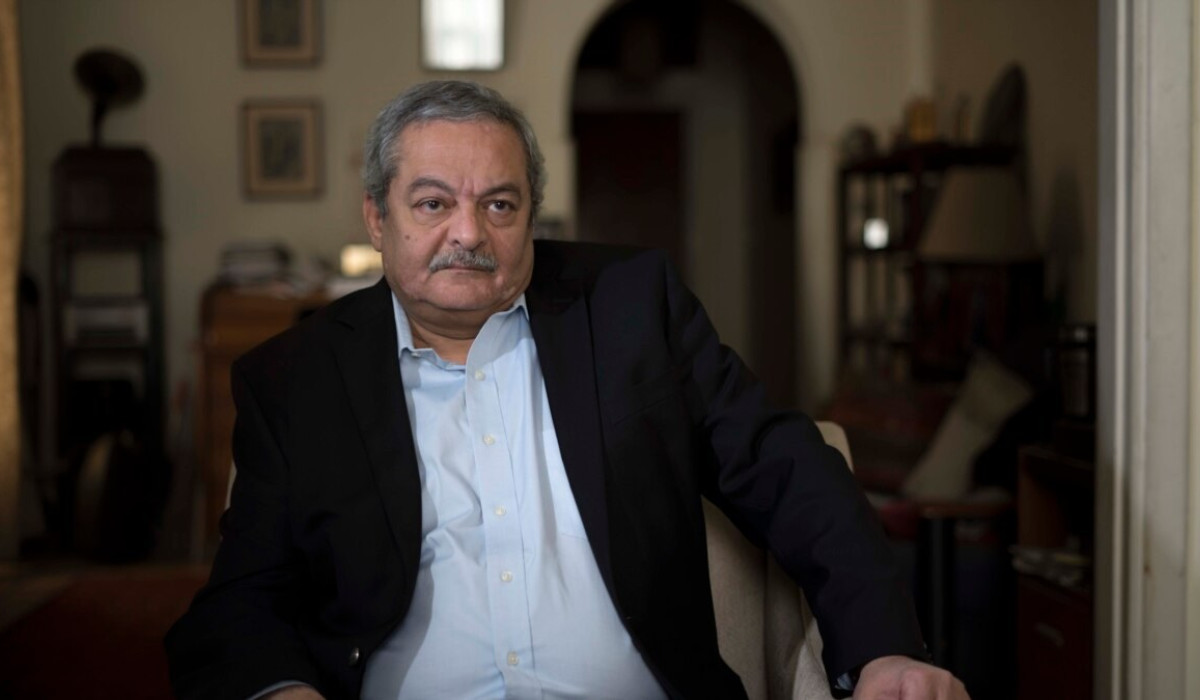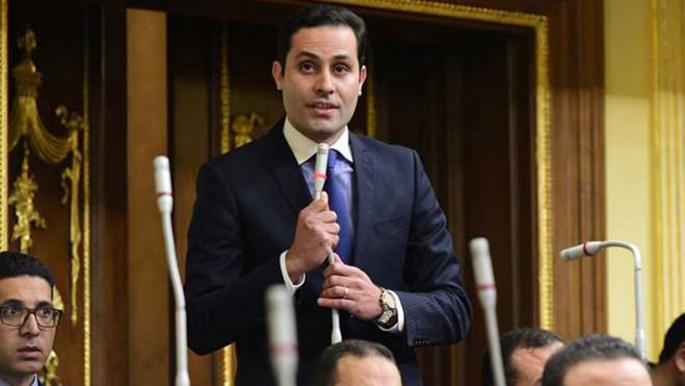Zawia3
Human rights organizations have stated that the unlawful violence against peaceful protests organized by hundreds of locally displaced and displaced residents from the areas of Rafah and Sheikh Zuweid in northeastern Sinai since 2013, to demand their right to return to their lands, “reflects the Egyptian government’s continued policy of undermining the will of the Sinai people, suppressing them, undermining their constitutional right to peaceful assembly and the assertion of their rights, and not addressing the errors of the past or discussing their serious consequences on the population.”
Organizations such as Sinai For Human Rights, Cairo Institute For Human Rights Studies, Egyptian Front for Human Rights, and El-Nadeem Centre for the Rehabilitation of Victims of Violence and Torture, along with several other organizations, signed a joint statement, Wednesday, stating that “on October 23 of this year, hundreds of residents of North Sinai, from the tribes of Al-Ramilat and Al-Sawarka, gathered near the villages of Al-Husaynat and Al-Mahdiyah near Rafah city, and the village of Al-Zawaraa near Sheikh Zuweid city, to demand their right to return to their lands, after the deadline set by the Egyptian authorities.” The Egyptian authorities promised them to return to their lands no later than October 20, 2023, during a meeting between tribal leaders and the commander of the Second Field Army, Major General Mohamed Rabei, in El-Arish city, last August, in the context of a sit-in by the displaced and displaced at the time.
The organizations added that “the army used unjustified violence against the protesters, deliberately firing bullets to disperse them, and arrested at least 9 of them, who are still being held in unlawful detention at the Saha Camp (the largest army camp inside Rafah). In addition, security personnel assaulted one of them brutally after a military armored vehicle intentionally collided with his car to stop it, resulting in a head injury and loss of consciousness. On the following morning, October 24, Sheikh Saber Al-Siyah Al-Ramilat, one of the prominent tribal figures in North Sinai and the leader of the August 2023 sit-in, wrote a post on his Facebook account in which he reported an attempt to arrest him based on instructions from the commander of the Second Field Army, declaring that he is about to turn himself in at the headquarters of Battalion 101 in El-Arish city. On the same day, dozens of participants in the protests were arrested by the Shalaq forces at the entrance to Sheikh Zuweid city.”
The organizations continued, “Under the pretext of combating terrorism, the Egyptian army has committed grave crimes against civilians in North Sinai over the past decade in clear violation of international human rights law, including the demolition of thousands of homes and buildings and the confiscation of tens of thousands of acres of farmland in the cities of Rafah, Sheikh Zuweid, and El-Arish. These military operations have led to the displacement of nearly 150,000 Sinai residents to different cities within Sinai or to other governorates, in addition to the complete destruction of the city of Rafah, which served as the starting point for the ongoing demolition and forced displacement campaigns since the end of 2013.
The organizations emphasized that “the agreement with military intelligence in 2021 guarantees allowing the locals to return to the villages they were displaced from in the cities of Sheikh Zuweid and Rafah outside the buffer zone with the Gaza Strip, provided they cooperate with the army in confronting the elements of the jihadist Sinai Province organization and clearing the area of terrorists. This has led to the deaths of dozens of tribal members and the injury of many. Despite the residents’ compliance with the ‘temporary’ relocation plan, the Egyptian authorities continue to ignore their legitimate demands to return to their lands, despite the repeated promises of officials to return. For example, the governor of North Sinai announced in a television interview in January 2022 that the residents of all villages in Sheikh Zuweid would be able to return to their homes within three months, that the new city of Rafah is being established, and that the situation will return to complete stability within one year. However, these promises have not been implemented to date.”
The protests by the residents of North Sinai come in the wake of recent fears of repeated news reports about Israeli plans to displace the residents of the Gaza Strip to the northern Sinai region in Egypt, with intense pressure on the Egyptian government to accept the permanent reception of Palestinian refugees from Gaza in Sinai. Adding to these concerns is the emptying of the eastern areas of Sinai of its inhabitants and the complete destruction of its infrastructure, especially in the city of Rafah and several villages in Sheikh Zuweid, as a result of a complete decade of military operations against the Sinai Province organization and the decisions of the Egyptian president that emptied the region of its population.
The organizations that signed this statement warned of the danger of continued forced displacement of the residents of North Sinai and the acceptance of the forced transfer of Gaza residents to Sinai, which represents a violation of international human rights law and international humanitarian law and constitutes a crime that enhances ethnic cleansing efforts. The organizations call on the Egyptian authorities to fulfill their responsibilities in rebuilding what was destroyed by the war on terrorism in North Sinai, provide fair financial compensation to thousands of Sinai civilians who have not received compensation despite eight years of displacement, and allow forcibly displaced people to return to their areas.
It is worth noting that on October 29, 2014, Prime Minister Ibrahim Mahlab issued a decree that called for the “evacuation and isolation” of an area extending approximately 5 kilometers inside North Sinai along the border with Gaza, including most of the city of Rafah. According to the map attached to the decree, the buffer zone was defined to extend along the border (13 kilometers) with Gaza and include about 79 square kilometers of Egyptian territory. The decree also stated that citizens forced to evacuate would receive “fair compensation” and alternative housing. However, the value of the compensation remained the subject of objection by local residents and human rights organizations due to its inadequacy compared to the extent of the damage, as well as the fact that thousands of displaced families have not received compensation despite years of the decree’s implementation.
On November 29, 2014, President Sisi issued Decree No. 444 of 2014, designating 5 kilometers of land within the city of Rafah as a “restricted” border area along the border with Gaza, citing the need to counter the threat of smuggling tunnels. Subsequently, thousands of homes in populated areas were demolished to create a buffer zone along the Gaza border, resulting in the complete destruction of entire neighborhoods and hundreds of acres of farmland.
On September 23, 2021, President Abdel Fattah el-Sisi issued Decree No. 420 of 2021, which specified approximately three thousand square kilometers of land in the northeastern part of the Sinai Peninsula as “border areas” subject to strict restrictions. This decree included many villages, residential areas, and major cities that still house thousands of residents within the restricted areas.
According to previous estimates published by the Sinai Foundation for Human Rights, about 40,000 citizens in North Sinai currently reside in areas designated as “restricted,” putting them under the constant threat of forced displacement. This does not account for the tens of thousands of civilians who were displaced from these areas and were hoping for an end to military operations so they could return to their homes. This recent decree shattered their hopes of returning to their lands. In the same year, the President issued Presidential Decree No. 442 of 2021, turning the “exception” into a “permanent status” in the Sinai Peninsula. The decree grants unprecedented powers to the Minister of Defense, effectively undermining all basic rights of civilians. These powers include the evacuation of certain areas, the prohibition of residence, proximity, or entry into certain areas, and the imposition of curfews.
International human rights law and humanitarian law strictly prohibit forced displacement and seizure of property except in exceptional circumstances, such as for the preservation of lives or as a last resort after all other solutions have been exhausted. These laws provide a set of guarantees that governments must follow in the event of the necessity of displacing populations, including transparent community discussions of the decision and its consequences, ensuring the dignity of citizens, providing them with appropriate compensation in advance, offering alternative land and housing, and allowing displaced individuals to return to their homes and lands as soon as the justifications for their displacement have ended. Article 63 of the Egyptian Constitution also prohibits arbitrary forced displacement of citizens in all its forms and violations of this are considered crimes that do not expire. However, in all cases investigated by human rights organizations such as Human Rights Watch, the government has failed to adhere to these standards and guarantees.



